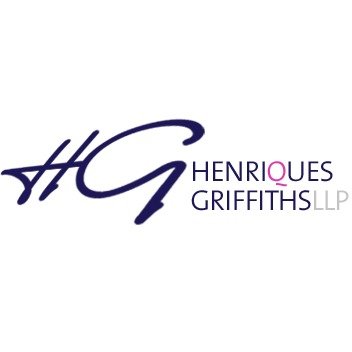Best Foreclosure Lawyers in Winterbourne Bassett
Share your needs with us, get contacted by law firms.
Free. Takes 2 min.
Free Guide to Hiring a Real Estate Lawyer
List of the best lawyers in Winterbourne Bassett, United Kingdom
About Foreclosure Law in Winterbourne Bassett, United Kingdom
Foreclosure law in Winterbourne Bassett generally falls under UK-wide property and mortgage laws. Foreclosure, also known as repossession, is a legal process that allows lenders to recover the amount owed on a defaulted loan by selling the property used as collateral for the loan. The process typically begins when a property owner defaults or falls behind with their mortgage payments. It's worth noting that the UK countries including England, Scotland, Wales, and Northern Ireland each have their specific legal nuances, despite sharing a common legal framework.
Why You May Need a Lawyer
Engaging legal representation during a foreclosure can be beneficial in a variety of scenarios. You may need a lawyer to help you understand the foreclosure proceedings, negotiate with your lender, or represent you in court. A lawyer may also assist you in exploring alternatives to foreclosure such as loan modification, short sale, or filing for bankruptcy. Moreover, professional legal help can also be invaluable in situations where you suspect predatory lending or unfair practices by your lender.
Local Laws Overview
Property law and bankruptcy law are the key bodies of laws influencing foreclosure in the UK, and by extension, in Winterbourne Bassett. The legal principles involved typically include the rights and obligations arising from mortgages, the process of repossession, and the redemption rights of the borrower. It’s also important to be aware of the pre-action protocol for possession claims based on mortgage or home purchase plan arrears in respect to residential property. The protocol outlines the steps an individual should take before making a claim to the court for possession of a property.
Frequently Asked Questions
What happens if I can't pay my mortgage?
If you can't pay your mortgage, your lender may take court action to repossess your home. Before this happens, they're required to work with you to find a solution, such as agreeing on a new repayment plan or changing your mortgage terms.
Will I have to go to court if I'm facing foreclosure?
In most cases, your lender does need to go to court to repossess your home. However, if you’ve been served with legal papers and you do nothing, the court can make a repossession order and you may lose your home.
Can I get my home back after it’s been foreclosed on?
In specific circumstances, you might be able to get your home back after it's been foreclosed on. This is often referred to as the right of redemption. However, this generally depends on a variety of factors including your financial situation and the specifics of your mortgage agreement.
How long does foreclosure take?
The length of the foreclosure process varies and can take anywhere from 6 months to a year or more. The duration largely depends on individual circumstances and how quickly your lender takes action.
Can I stop the foreclosure process?
In some cases, you might be able to stop or at least delay the foreclosure process. Options might include negotiating with your lender, getting a loan modification, or filing for bankruptcy. Yet, success will depend on your specific circumstances, and advice from a legal professional is highly recommended.
Additional Resources
The Government’s official website provides detailed information on your rights, procedures, and support when facing foreclosure. Citizen's Advice and the Money Advice Service are also valuable resources for free and impartial advice. Legal aid might also be available to those who meet the eligibility criteria.
Next Steps
If you believe you're at risk of foreclosure or are already facing it, the first step should be to contact your lender to discuss your options. If this does not help or if legal proceedings have begun, it's advisable to seek legal counsel immediately. Many attorneys specializing in foreclosure offer initial consultations free of charge or at a low cost. They can advise you on your best course of action based on your individual circumstances.
Lawzana helps you find the best lawyers and law firms in Winterbourne Bassett through a curated and pre-screened list of qualified legal professionals. Our platform offers rankings and detailed profiles of attorneys and law firms, allowing you to compare based on practice areas, including Foreclosure, experience, and client feedback.
Each profile includes a description of the firm's areas of practice, client reviews, team members and partners, year of establishment, spoken languages, office locations, contact information, social media presence, and any published articles or resources. Most firms on our platform speak English and are experienced in both local and international legal matters.
Get a quote from top-rated law firms in Winterbourne Bassett, United Kingdom — quickly, securely, and without unnecessary hassle.
Disclaimer:
The information provided on this page is for general informational purposes only and does not constitute legal advice. While we strive to ensure the accuracy and relevance of the content, legal information may change over time, and interpretations of the law can vary. You should always consult with a qualified legal professional for advice specific to your situation.
We disclaim all liability for actions taken or not taken based on the content of this page. If you believe any information is incorrect or outdated, please contact us, and we will review and update it where appropriate.








